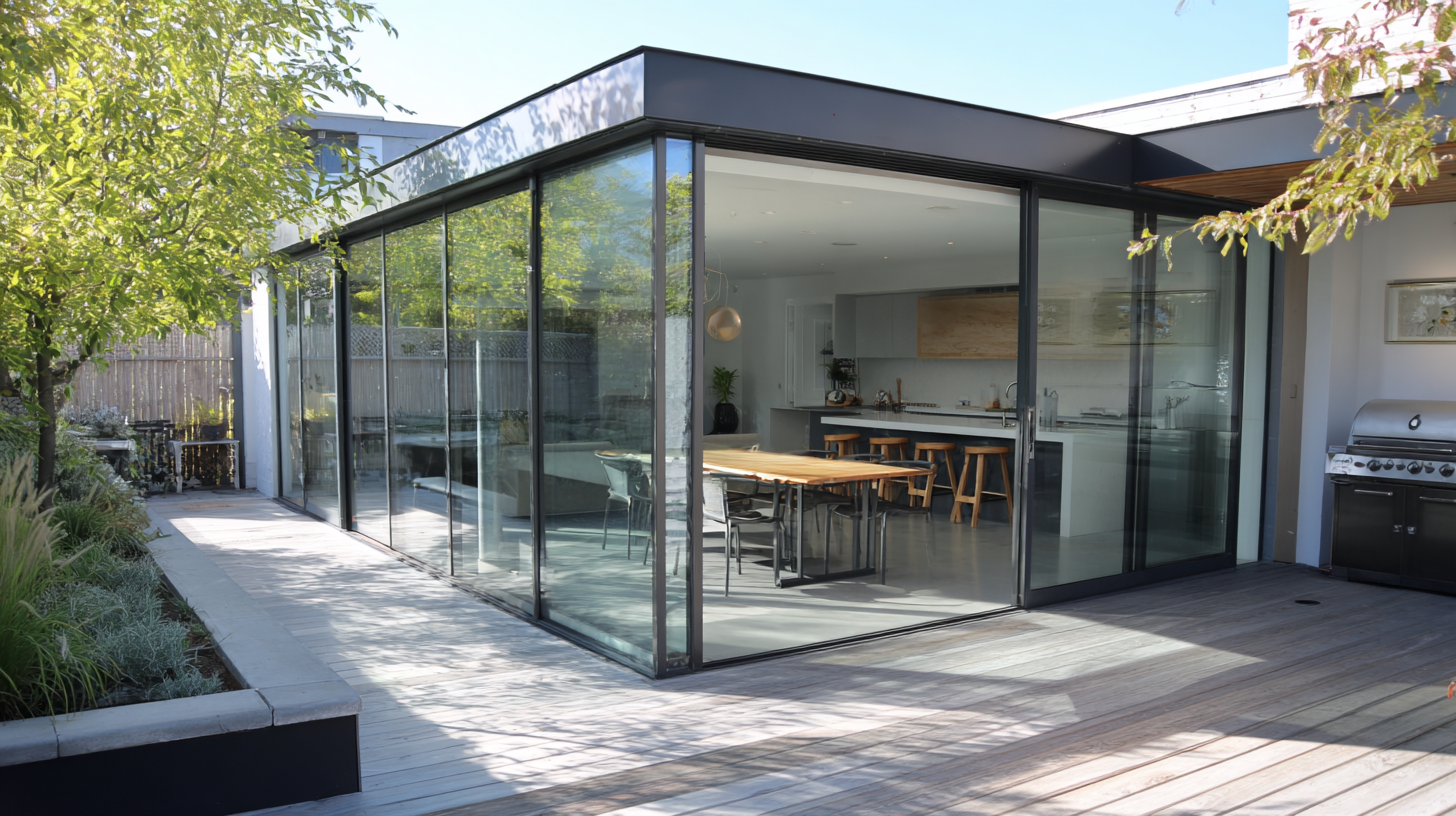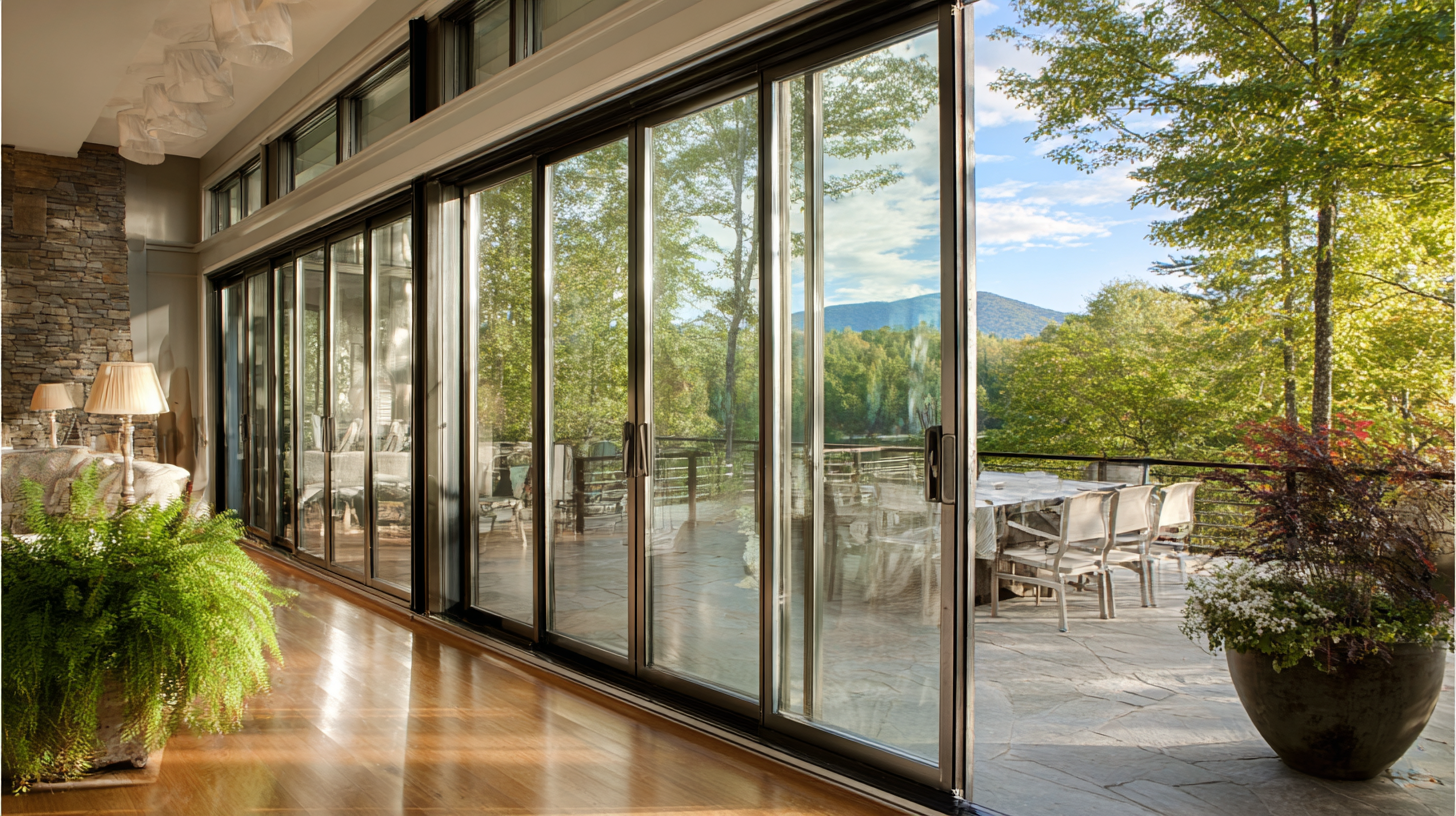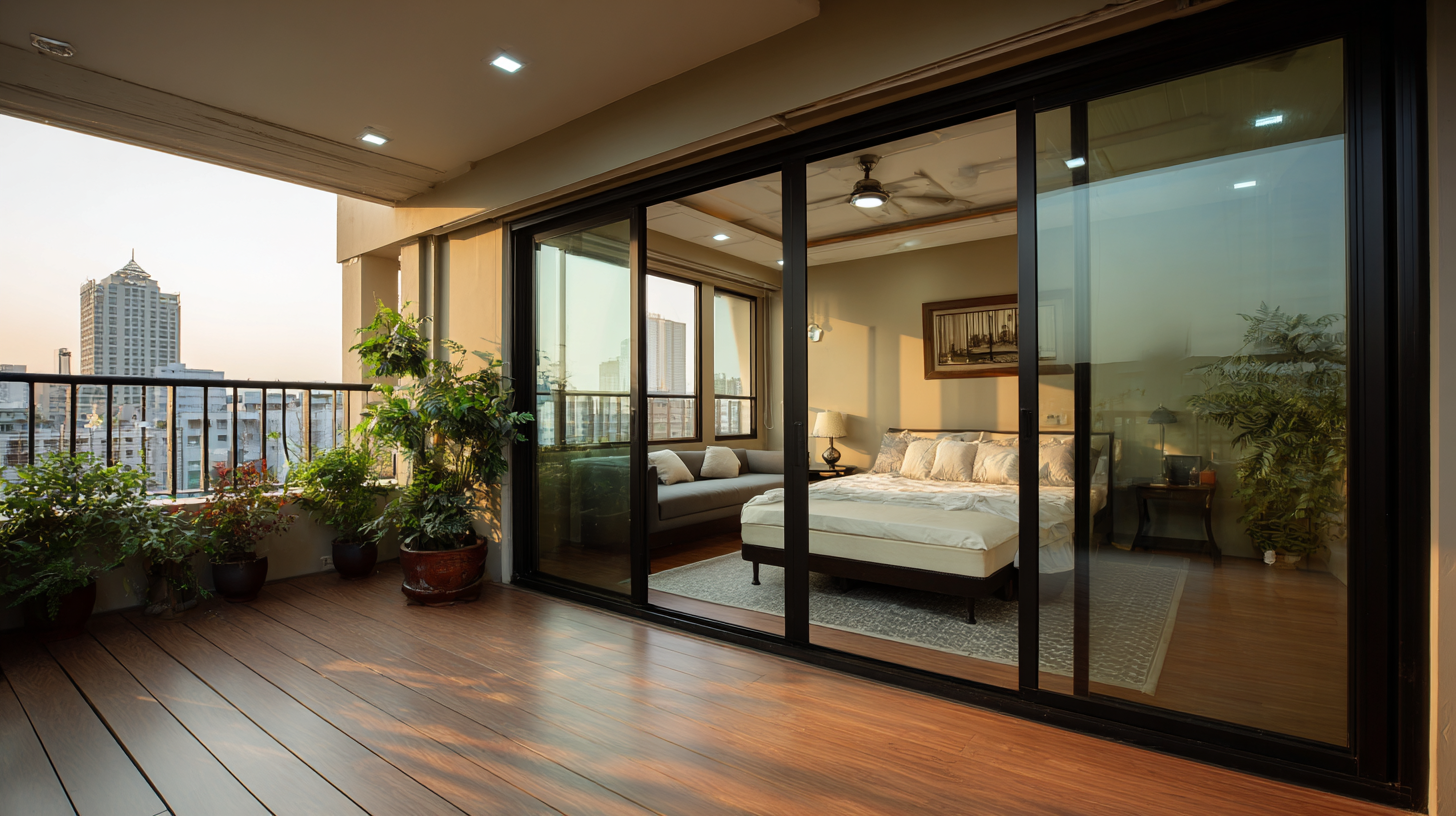In today's environmentally-conscious market, homeowners are increasingly seeking solutions that not only enhance aesthetics but also improve energy efficiency. Aluminium Glass Sliding Doors have emerged as a leading choice, combining sleek design with advanced thermal performance to reduce energy consumption. According to a report by the National Fenestration Rating Council (NFRC), installing high-quality sliding doors can result in energy savings of up to 30% in residential settings. LEAWOD Windows & Doors Group Co., Ltd. stands at the forefront of this evolution, specializing in the research and development of premium door solutions. As the inventor and manufacturer of R7 seamless whole welding windows and doors, LEAWOD is committed to delivering products that help homeowners optimize their energy efficiency while enjoying stylish and functional living spaces. Selecting the right Aluminium Glass Sliding Doors can significantly contribute to reducing your carbon footprint and enhancing overall home comfort.

When considering aluminium glass sliding doors, it's essential to first identify your home’s energy efficiency needs. According to a report by the Department of Energy, heat gain and loss through windows accounts for about 25% to 30% of residential heating and cooling energy use. Thus, choosing the right sliding doors can significantly impact your energy consumption and utility bills.
Tip: Look for sliding doors with a high Energy Star rating. These doors typically feature double or triple-glazed glass, which enhances insulation and reduces heat transfer. You should also consider Low-E (low emissivity) glass options, which reflect heat while allowing natural light to pass through.
Additionally, the framing material plays a crucial role in energy efficiency. Aluminium frames with thermal breaks can prevent heat loss, ensuring that your home remains comfortable throughout the year. According to a study published by the National Fenestration Rating Council, thermal break technology can reduce energy loss by up to 40%.
Tip: Ensure proper installation of your sliding doors to avoid air leaks, which can severely undermine the energy efficiency of even the best products. Proper sealing and insulation are key to maximizing performance and comfort.
When selecting aluminium glass sliding doors for your home, focusing on key features that enhance energy efficiency is crucial. One essential aspect is thermal insulation.
High-quality sliding doors often come with double or triple glazing, which reduces heat transfer and keeps your indoor environment comfortable, regardless of the season.
Look for doors with low-emissivity (Low-E) glass, as this coating reflects heat back into your home during winter and keeps it cool in summer.
Another critical feature is the frame construction. Opt for aluminium frames with thermal breaks. These breaks prevent the transfer of heat between the interior and exterior, leading to significant energy savings.
In addition, ensure the doors are equipped with weather stripping and high-performance seals, which minimize draughts and prevent air leaks.
Combining these features not only boosts the energy efficiency of your home but also contributes to a more sustainable lifestyle.
When choosing aluminium glass sliding doors, understanding the different types of glass and their energy performance is crucial for enhancing your home's energy efficiency. Low-emissivity (Low-E) glass, for example, is designed to reflect heat back into the home during winter and keep it out during summer. This dual function helps maintain a consistent indoor temperature, reducing the need for heating and cooling systems to work overtime.
Another aspect to consider is the visible transmittance of the glass, which indicates how much natural light can enter your home. Selecting glass with a higher visible transmittance allows for ample daylight, thus minimizing the need for artificial lighting. This can lead to lower electricity bills and a more pleasant living environment.

Tips:
When choosing aluminium glass sliding doors, evaluating the frame materials for thermal insulation is crucial to enhancing your home's energy efficiency. The selection of thermal insulation materials directly influences the door's performance, especially in relation to the energy consumption of nearly zero energy buildings, as outlined in the EU Directive 2010/31. Opting for materials with superior thermal insulating properties can significantly reduce the energy required for heating and cooling, leading to lower utility bills and a reduced carbon footprint.

One innovative approach lies in utilizing advanced materials such as vacuum glazing, which offers excellent thermal insulation within a lightweight framework. Additionally, incorporating substances like wood fly ash or calcium bentonite can enhance the overall thermal properties of the frame. In regions with low seismic activity, regular reinforced concrete (RC) frames can be optimized by integrating materials with improved thermal insulation characteristics. This not only boosts energy efficiency but also ensures that the structure meets the evolving standards of energy-saving and eco-friendly building practices.
When installing aluminium glass sliding doors, proper installation is crucial for maximizing energy efficiency in your home. One of the first steps is to ensure that the door frame is level and square. This makes a significant difference in how well the door seals against air leaks, ultimately preventing energy loss. It’s vital to use high-quality sealants and weather stripping around the door frame to further enhance its insulation properties.
Another important tip is to select the right type of glass. Double-glazed or Low-E glass options can greatly improve thermal performance by reducing heat transfer. During installation, avoid any gaps or spaces between the door panels and frames as these can lead to drafts and increased energy costs. Ensuring that the frames are properly insulated and fitted snugly will help maintain a stable indoor temperature, making your home more comfortable and energy-efficient.
When selecting aluminium glass sliding doors for your home, the design must strike a balance between aesthetics and functionality. According to a report by the U.S. Department of Energy, homes with well-designed sliding doors can significantly boost energy efficiency by as much as 20%. Choosing doors with high-performance glass can reduce heat transfer, ensuring a comfortable indoor climate throughout the year while minimizing energy costs.
The aesthetic appeal of aluminium glass sliding doors lies in their sleek, modern design, which complements various architectural styles. A 2022 survey by the National Association of Home Builders indicated that 64% of homeowners prioritize aesthetic appeal when making renovation decisions. Leveraging versatile frame colors and finishes allows homeowners to achieve a cohesive look that enhances their property’s curb appeal. Furthermore, opting for features like low-E coatings can not only enhance energy efficiency but also reduce glare and preserve the vibrancy of the interior decor.
: Sliding doors can significantly affect energy consumption and utility bills, as heat gain and loss through windows accounts for about 25% to 30% of residential heating and cooling energy use.
Look for sliding doors with a high Energy Star rating, double or triple-glazed glass, and Low-E (low emissivity) glass options that reflect heat while allowing natural light to pass through.
Aluminium frames with thermal breaks can prevent heat loss and maintain a comfortable indoor environment throughout the year, potentially reducing energy loss by up to 40%.
Proper installation is crucial to avoid air leaks, which can compromise the energy efficiency of even the best sliding doors. Adequate sealing and insulation maximize performance and comfort.
Focus on features like double or triple glazing for thermal insulation, Low-E glass to manage heat transfer, and aluminium frames with thermal breaks to enhance energy savings.
Weather stripping and high-performance seals help minimize draughts and prevent air leaks, further improving the energy efficiency of the sliding doors.
Thermal breaks stop the transfer of heat between the interior and exterior of the home, leading to significant energy savings by keeping indoor temperatures stable.
Low-E glass is a type of coating that reflects heat back into the home during winter and keeps it cooler in summer, thus enhancing overall energy efficiency.
Choosing the right Aluminium Glass Sliding Doors is essential for enhancing your home's energy efficiency. Start by assessing your specific energy needs, as this will guide you in selecting the features that best suit your home. Look for key attributes such as double glazing and low-E glass, which significantly contribute to energy savings. Understanding the various glass types and their performance levels is crucial, as well as evaluating the frame materials for optimal thermal insulation.
Proper installation plays a vital role in maximizing energy efficiency, so it’s important to follow best practices during this process. Finally, consider the aesthetic aspects of your Aluminium Glass Sliding Doors to ensure they blend seamlessly with your home’s design. At LEAWOD Windows & Doors Group Co., Ltd., we specialize in high-end, energy-efficient solutions, making us your go-to partner for premium Aluminium Glass Sliding Doors that enhance both function and style.











 +0086-157 7552 3339
+0086-157 7552 3339  info@leawod.com
info@leawod.com 